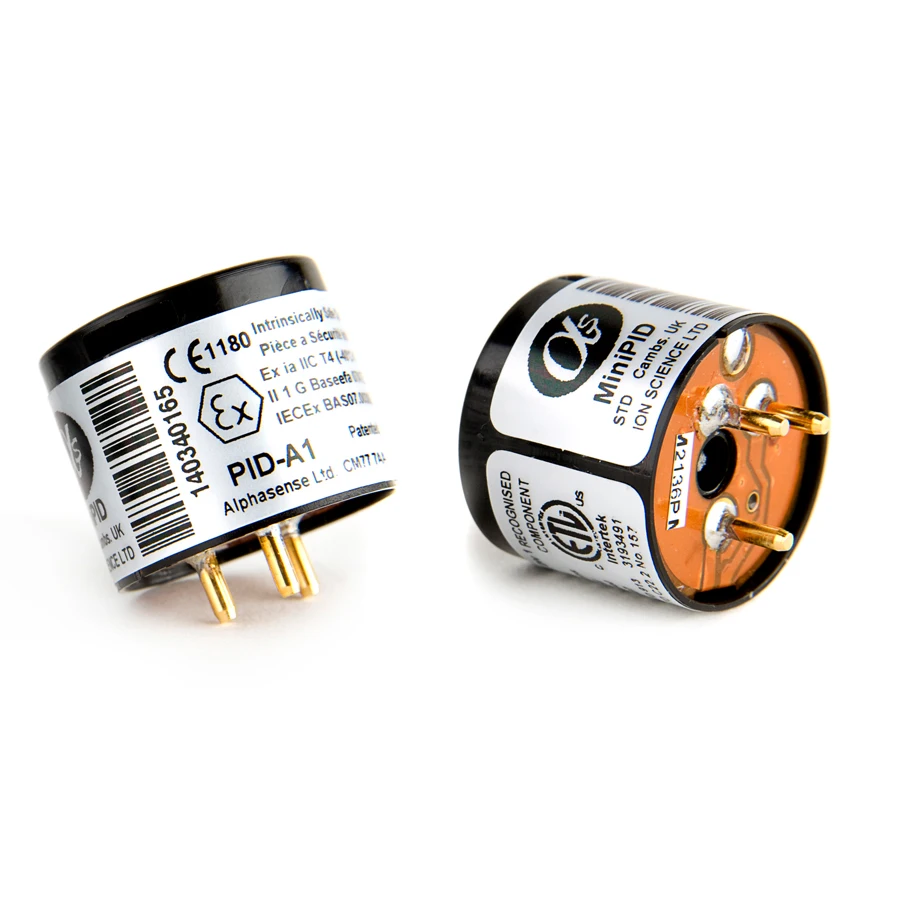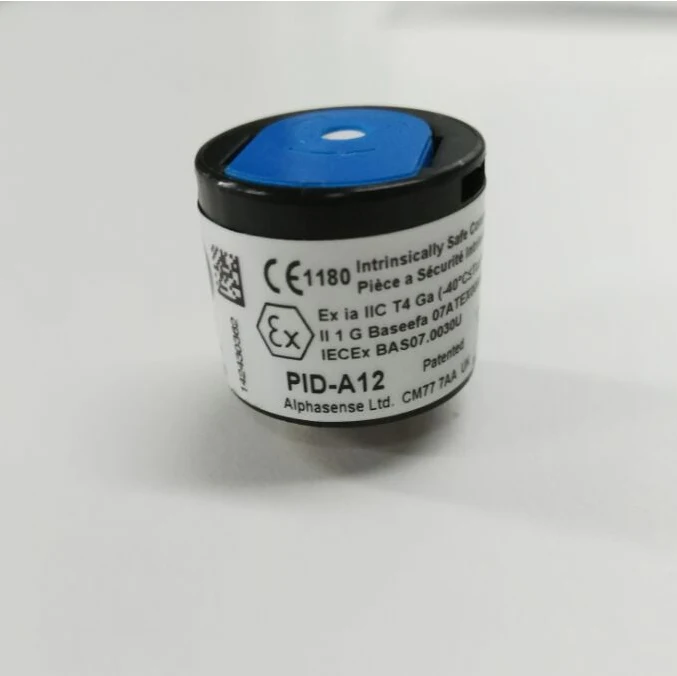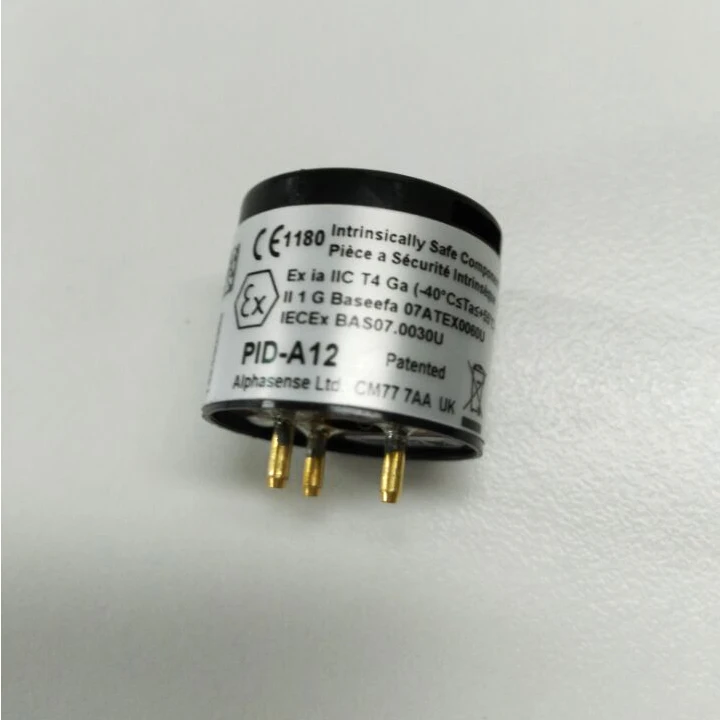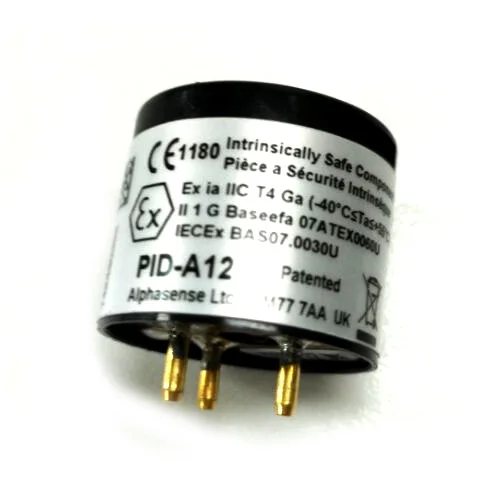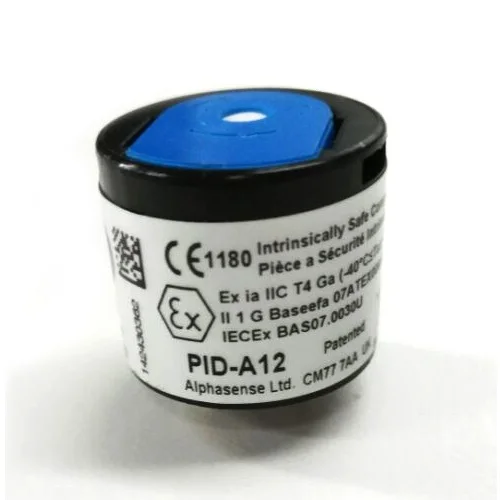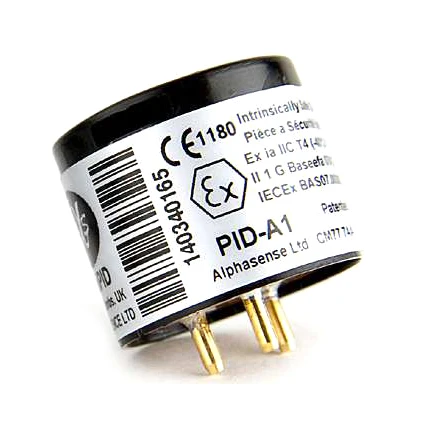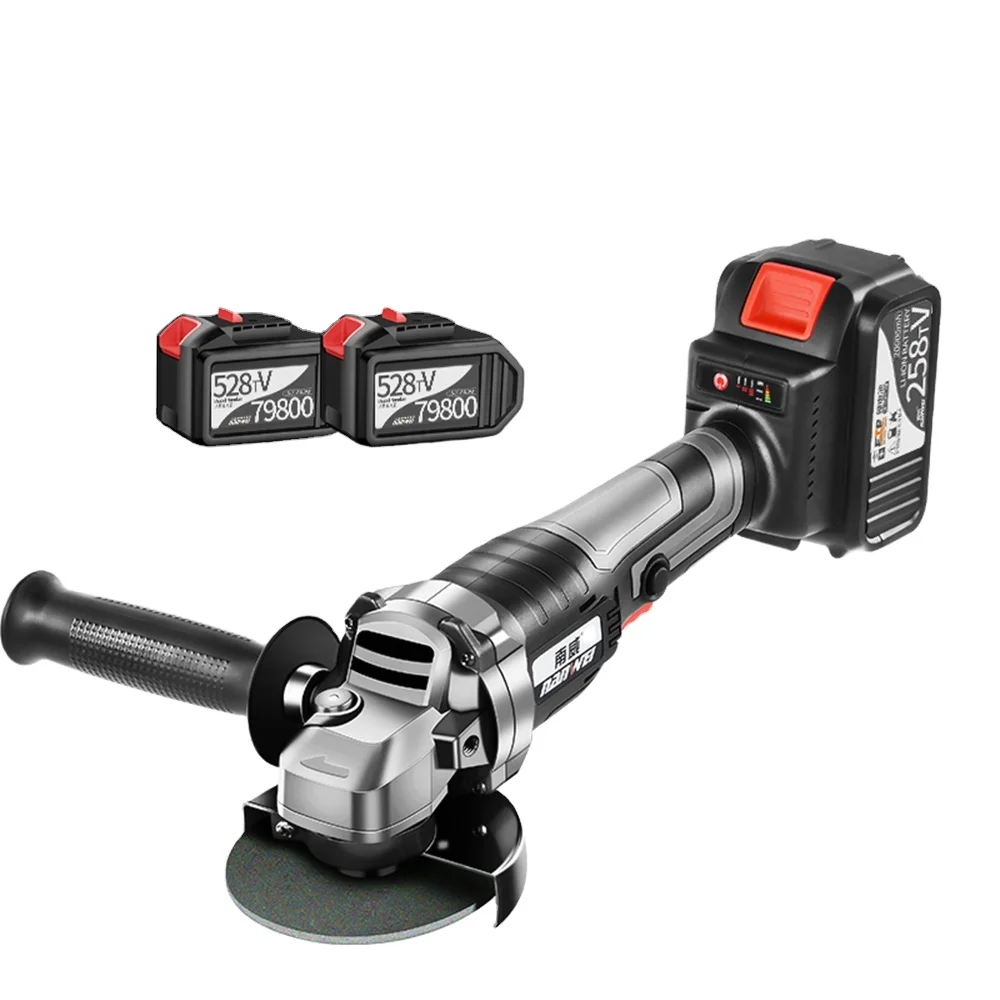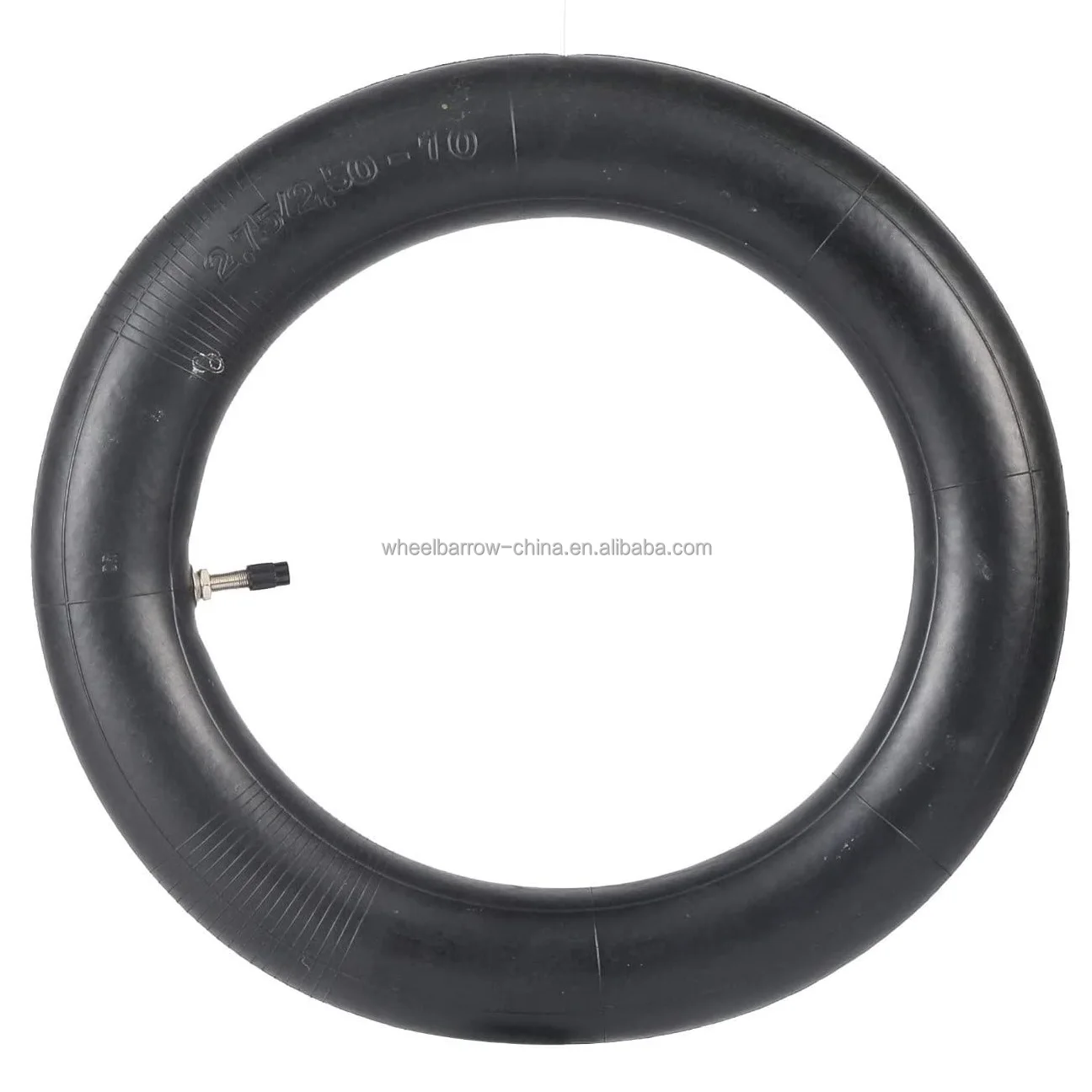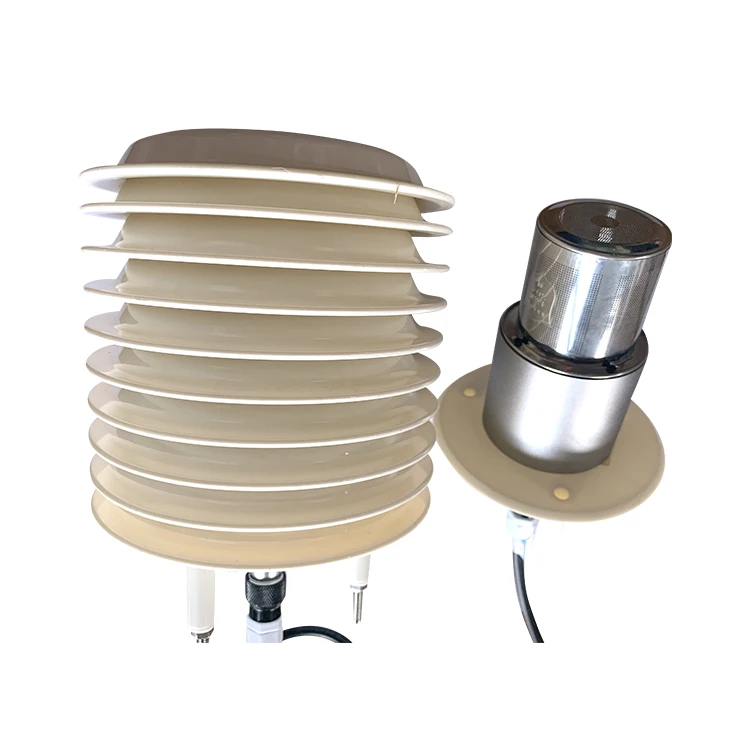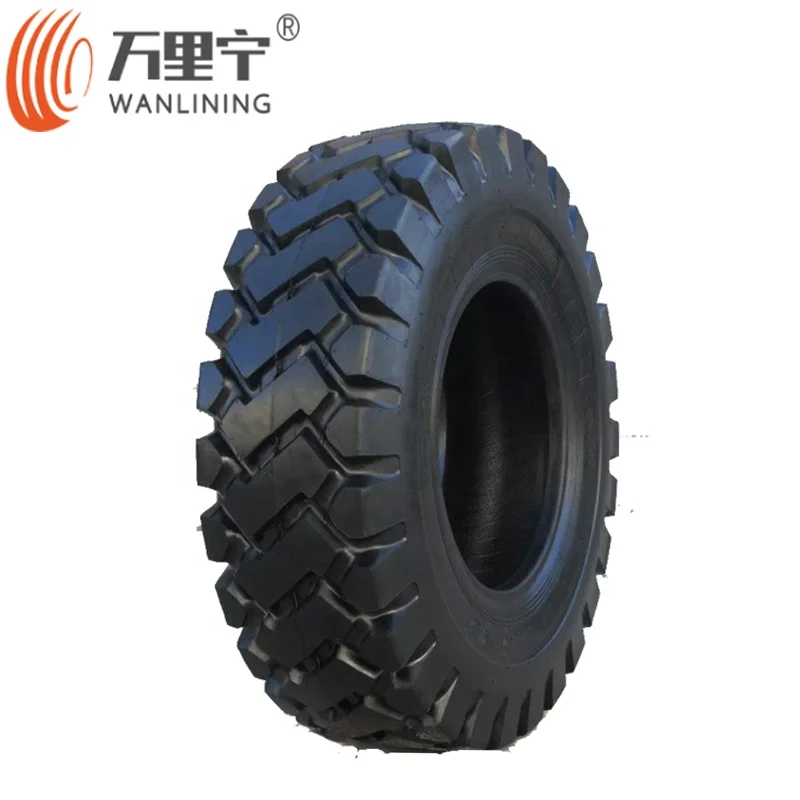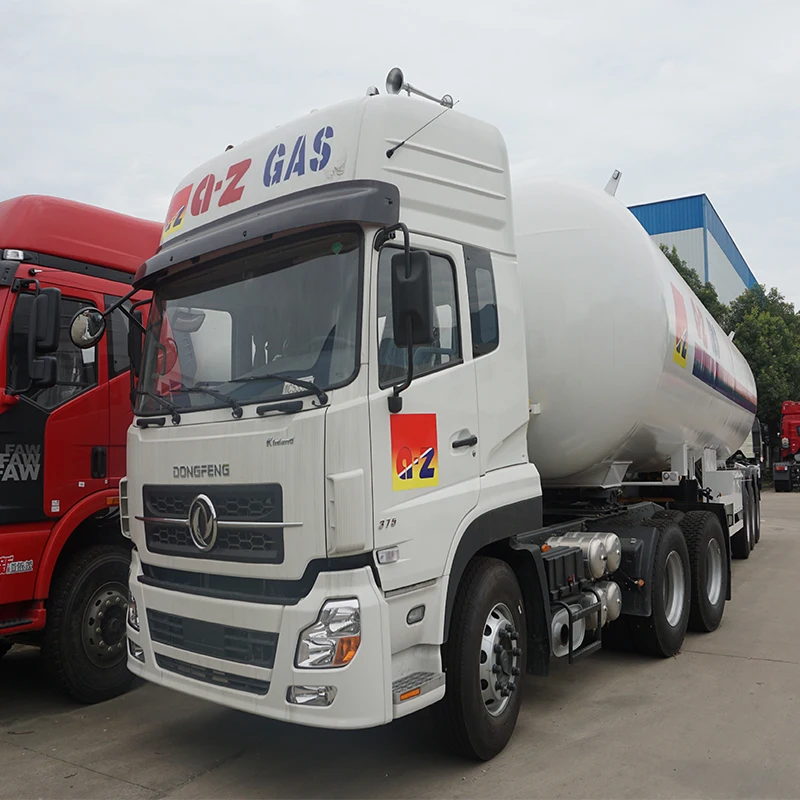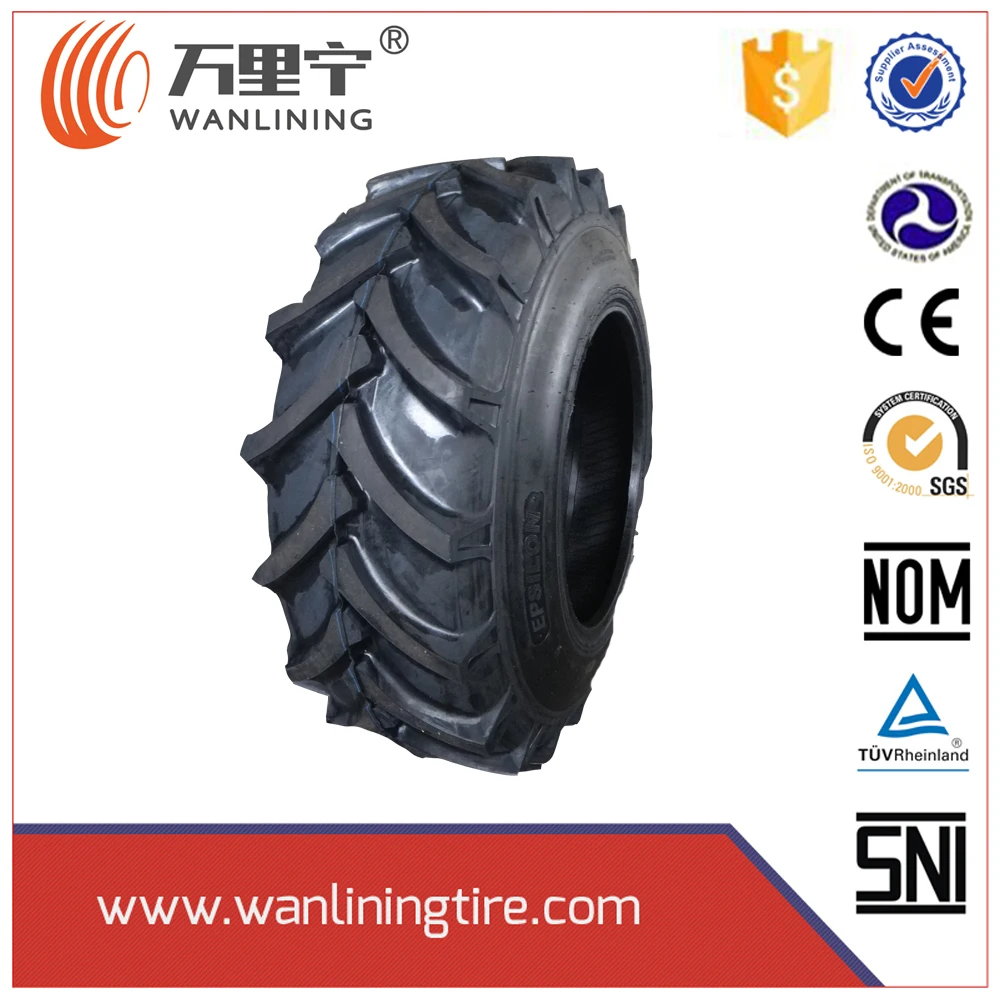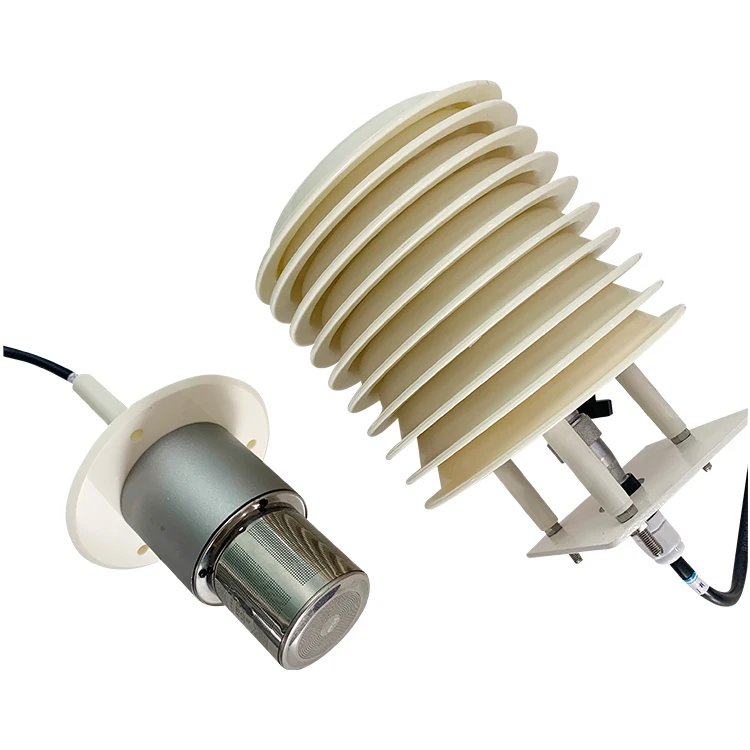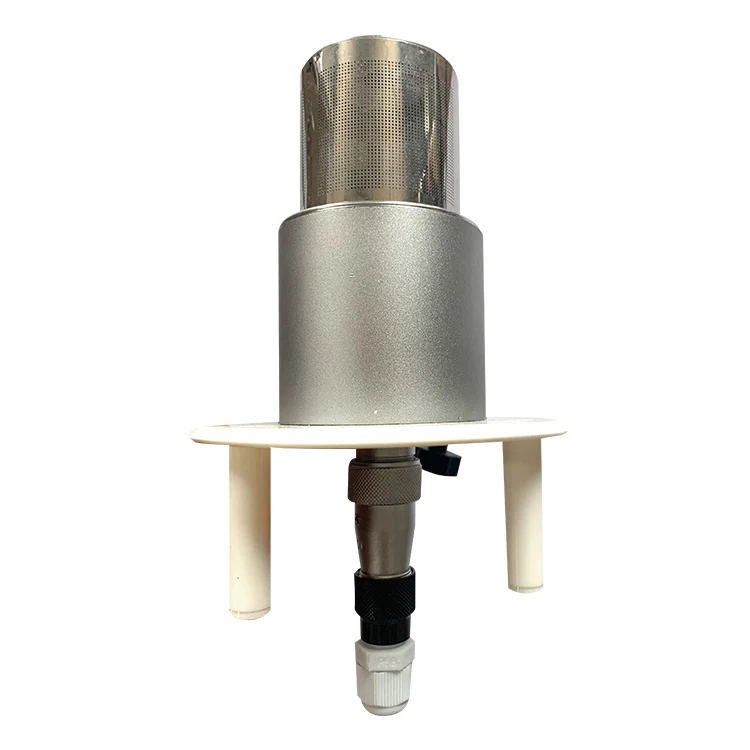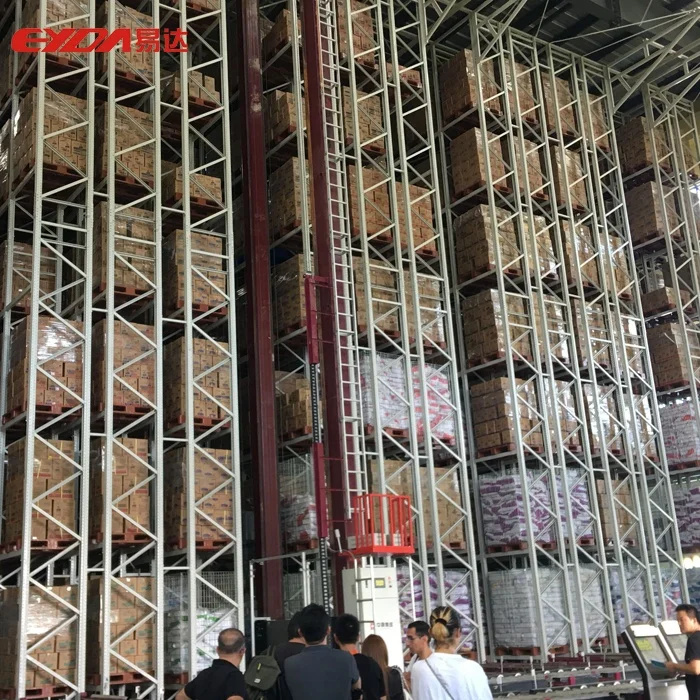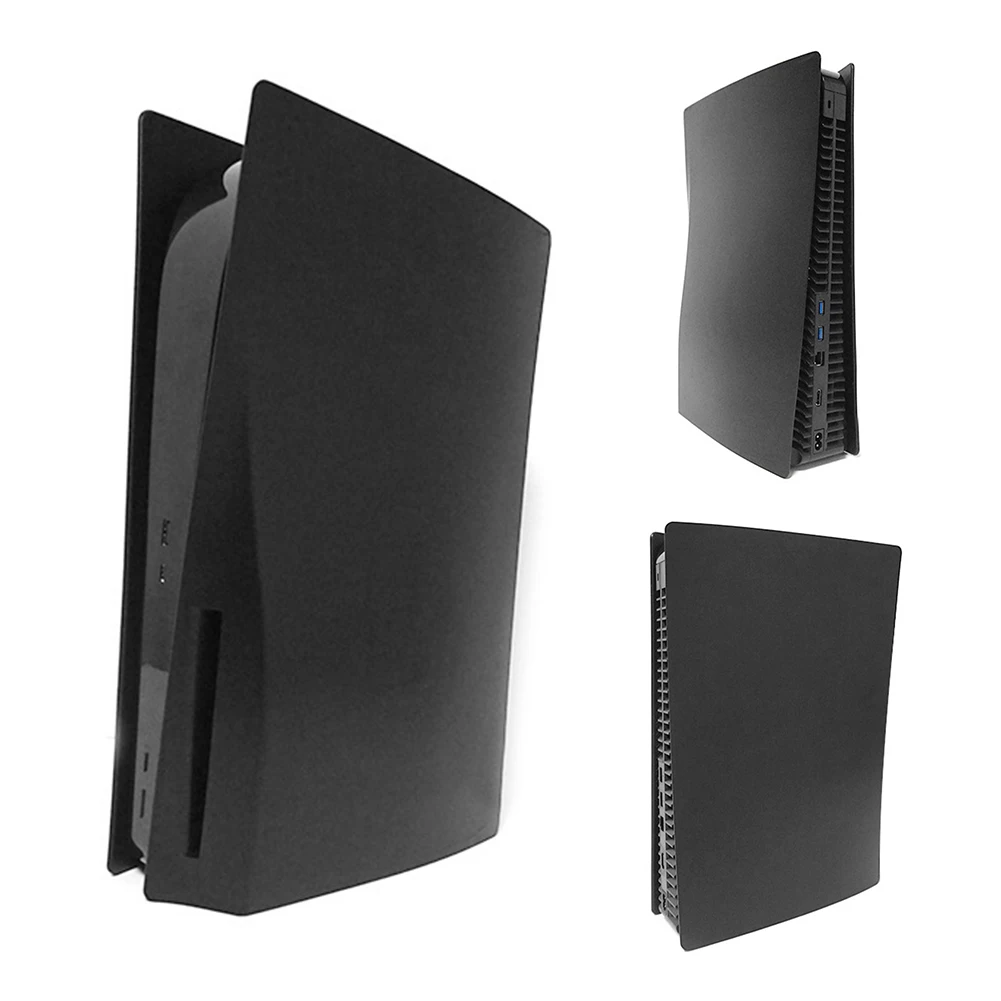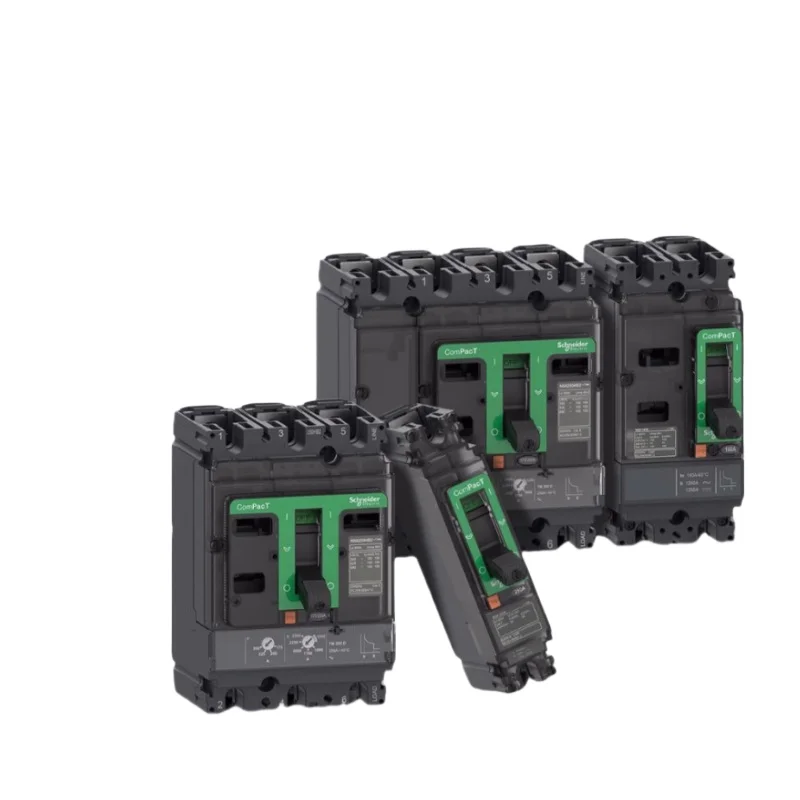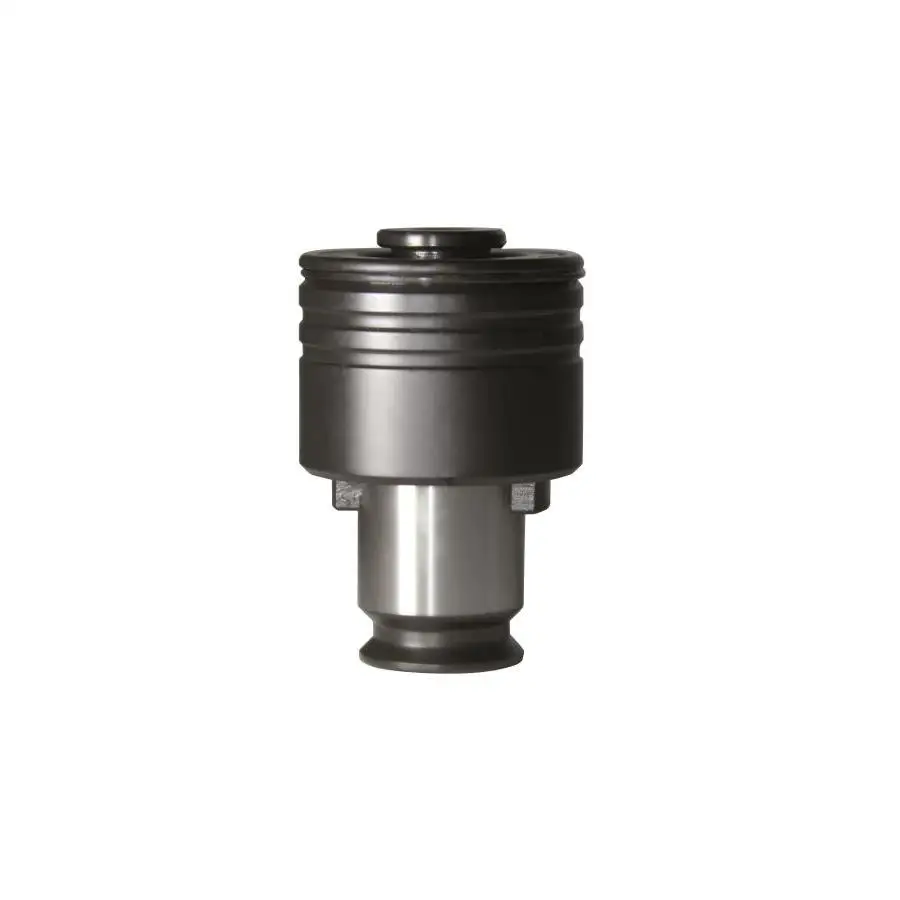50 ppb до 6000 ppm летучие органические соединения (VOCs) фотоионизирующий датчик газа (ПИД датчик) PID A1
- Категория: >>>
- Поставщик: Shenzhen Week Technology Ltd.
Сохранить в закладки 60758327376:
Описание и отзывы
Характеристики
50 ppb to 6,000 ppm Volatile Organic Compounds (VOCs) Photoionization Gas Sensor (PID Sensor) PID-A1
Photoionization Gas Sensor (PID Sensor) PID-A1 Description
With a PID, the sample gas is exposed to deep ultraviolet light.
The emitted light ionises targeted gases and they are then detected by the PID electronics and reported as a concentration (ppb or ppm).
PIDs can measure Volatile Organic Compounds (VOCs) to very low concentrations.
Considered the gold standard for VOC measurement, Alphasense PIDs are compact and low power, with recently improved electronics and longer lamp life. An extended family of lamps now include better BTEX and chlorinated VOC detection. These sensors are pin-replaceable with the 4P90 pellistor.
The Alphasense PID sensor is offered in two models, A12 and AH2. They are virtually insensitive to humidity changes, providing unparalleled performance in a variety of applications.
PID-A12 has a linear dynamic range of 50 ppb to 6,000 ppm (Isobutylene).
PID-AH2 has a linear dynamic range of 1 ppb to 50 ppm (Isobutylene).
The sensors include a detector with lamp driver, amplifier circuitry, and user replaceable electrode stack, 10.6 eV lamp and particulate filter.
Photoionization Gas Sensor (PID Sensor) PID-A1 Schematic Diagram

Photoionization Gas Sensor (PID Sensor) PID-A1 Specification
| PID-A1 Photoionization Gas Sensor (PID Sensor) PERFORMANCE | ||
| Target gases | VOCs with ionisation potentials | < 10.6 eV |
| Minimum resolution | ppb isobutylene | < 50 |
| Linear range | ppm isobutylene 5% deviation | 300 |
| Overrange | ppm isobutylene | 6000 |
| Sensitivity | linear range mV/ppm Isobutylene, see Table 1 for options | > 0.3 |
| Full stabilisation time | minutes to 100 ppb | 20 |
| Warm up time | seconds time to full operation | 5 |
| Offset voltage | mV | 50 to 59 |
| Response time (t90) | seconds diffusion mode | < 3 |
| PID-A1 Photoionization Gas Sensor (PID Sensor) ELECTRICAL | ||
| Power consumption | 85 mW (max) at 3.2 V, 350 mW transient for 200 msec on switch-on | |
| 90 mW at 3.3 V, 460 mW transient for 200 msec on switch-on | ||
| Supply voltage | 3.2 to 3.6 VDC Ideally regulated ±0.01V (onboard regulator disabled) | |
3.6 to 10 VDC (onboard regulator enabled) (maximum 10V for IS approval, maximum 18 V for non-IS) | ||
| Output signal | Offset voltage (minimum 50 mV) to Vmax (Vmax = Vsupply -0.1 V when regulator is enabled) | |
| PID-A1 Photoionization Gas Sensor (PID Sensor) ENVIRONMENTAL | ||
| Temperature range | -40℃ to +55℃ (Intrinsically Safe); -40℃ to +65℃ (non-IS) | |
| Temperature dependence | 0℃ to 40℃ 90% to 100% of signal at 20℃ | |
| -20℃ 140% of signal at 20°℃ | ||
| Relative humidity range | Non-condensing | 0 to 95% |
| Humidity sensitivity | During operations: 0% to 75% rh transient | near zero |
| PID-A1 Photoionization Gas Sensor (PID Sensor) KEY SPECIFICATIONS | ||
| Operating life | 5 years (excluding replaceable lamp and electrode stack) | |
| IS Approval | IECEx Ex ia IIC T4;ATEX Ex ia II 1G -40℃ < Ta < +55℃ (< 10VDC supply) | |
| Onboard filter | To remove liquids and particulates | |
| Lamp | User replaceable | |
| Electrode stack | User replaceable | |
| Error state signal | Lamp out: 32 ±4 mV | |
| Electronic error: 22 ±6 mV | ||
| Weight | < 8g | |
| Position sensitivity | None | |
| Warranty period | Electronics and housing: 24 months | |
| Lamp and electrode stack are user replaceable. 10.6eV lamp: 5000 lit hours | ||
Contact Information:

Похожие товары
Высококачественная мотоциклетная бутиловая внутренняя трубка 3,00-21 2,75-19 3,50-18 4,00-18 3,50-17 4,50-17 дюймов, запасные части для KTM CRF YZF WR
Оптовая продажа от производителя, модуль tuya sensor voc gas
Китайская фабрика, высокое качество, оптовая продажа, дешевые пневматические шины для грейдеров 17,5-25 26,5-25,23.5-25,20.5-25,14.00-25,14.00-24
ASME ISO стандартный LPG изобутилен пропан прицеп LPG цилиндр транспортный грузовик прицеп LPG Автоцистерна для продажи производитель
Сельскохозяйственная Тракторная шина, передняя Тракторная шина 600-16
Подгонянный газовый анализатор pid Датчик качества воздуха детектор voc газа
Пользовательские импорт nh3 o3 мульти анализатор газа все в одном модуль датчик voc co2 particule
Новые поступления
Новинки товаров от производителей по оптовым ценам
